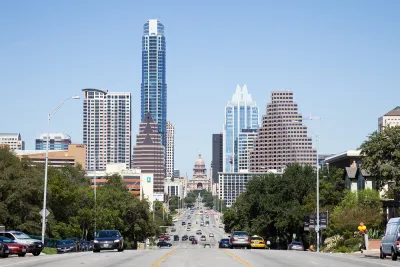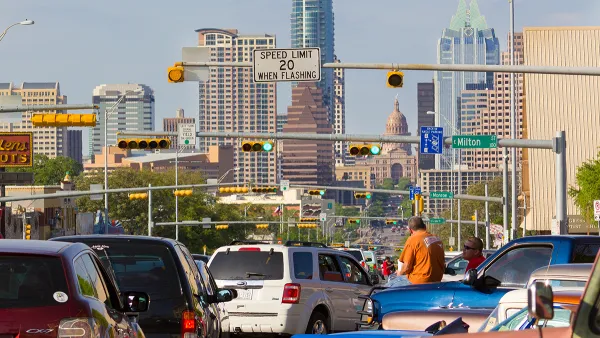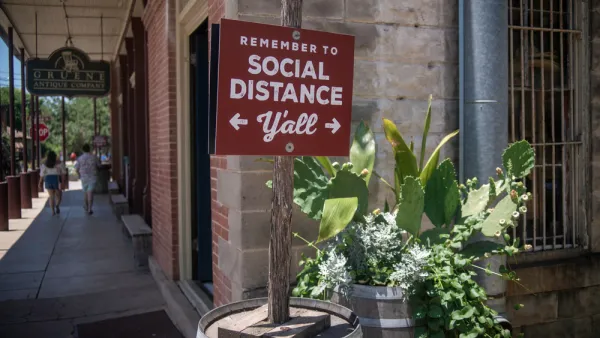Local groups are concerned that voting for the city of Austin's $720 million transportation bond will require a leap of faith.

Audrey McGlinchy reports on the $720 million scheduled for the November ballot in Austin, Texas. The controversy surrounding the bond concerns the ongoing uncertainty about exactly how and where the $720 million would be spent should voters approve the bond.
"Although $482 million of the bond’s total price tag has been set aside for changes to seven main roads, plus studies of two others, city staff has said that fully funding the corridor studies would cost closer to $1.5 billion," according to McGlinchy. "So, with less than a third of that amount in hand should the bond be approved by voters in November, staff and Council would still have to fund the rest piecemeal."
The bond, first announced in May and covered by Planetizen in June, is one of Mayor Steve Adler's signature initiatives. Adler's explanation for the uncertainty surrounding the bond is that a finalized list of corridor plans would cost too much and waste time.
However, Mayor Adler does promise that the bond will have guidance and checks and balances in place. McGlincy explains:
When City Council approved the bond, it also approved a set of guiding goals for staff, including addressing congestion and increasing transit options, such as infrastructure for buses and bikes. These, the mayor said, will be priority when staff decides which portions of Austin’s main roads deserve makeovers. Council will also have to approve each piece of spending with this bond money, meaning there will be a venue for at least some form of public input.
The article also shares the details of the Austin Neighborhoods Council's objections to the lack of detail regarding the bond.
FULL STORY: The leap of faith inherent in voting for the $720 million bond

National Parks Layoffs Will Cause Communities to Lose Billions
Thousands of essential park workers were laid off this week, just before the busy spring break season.

Retro-silient?: America’s First “Eco-burb,” The Woodlands Turns 50
A master-planned community north of Houston offers lessons on green infrastructure and resilient design, but falls short of its founder’s lofty affordability and walkability goals.

Delivering for America Plan Will Downgrade Mail Service in at Least 49.5 Percent of Zip Codes
Republican and Democrat lawmakers criticize the plan for its disproportionate negative impact on rural communities.

Test News Post 1
This is a summary

Test News Headline 46
Test for the image on the front page.

Balancing Bombs and Butterflies: How the National Guard Protects a Rare Species
The National Guard at Fort Indiantown Gap uses GIS technology and land management strategies to balance military training with conservation efforts, ensuring the survival of the rare eastern regal fritillary butterfly.
Urban Design for Planners 1: Software Tools
This six-course series explores essential urban design concepts using open source software and equips planners with the tools they need to participate fully in the urban design process.
Planning for Universal Design
Learn the tools for implementing Universal Design in planning regulations.
EMC Planning Group, Inc.
Planetizen
Planetizen
Mpact (formerly Rail~Volution)
Great Falls Development Authority, Inc.
HUDs Office of Policy Development and Research
NYU Wagner Graduate School of Public Service





























